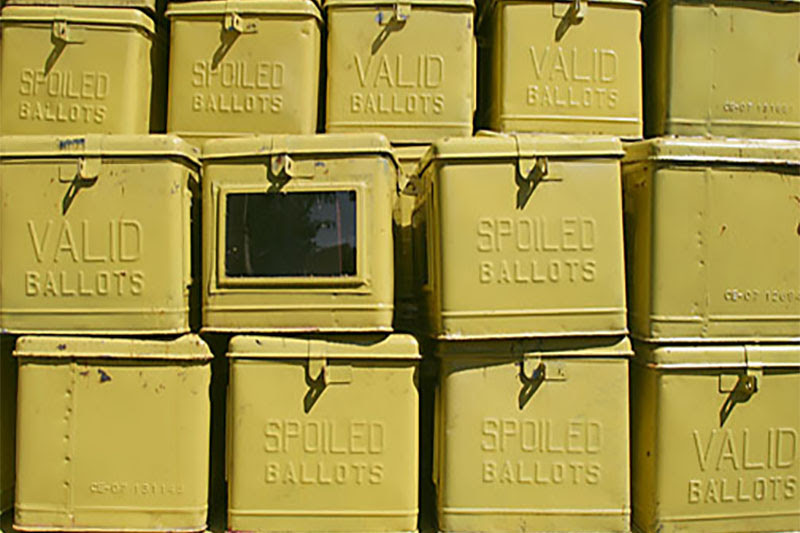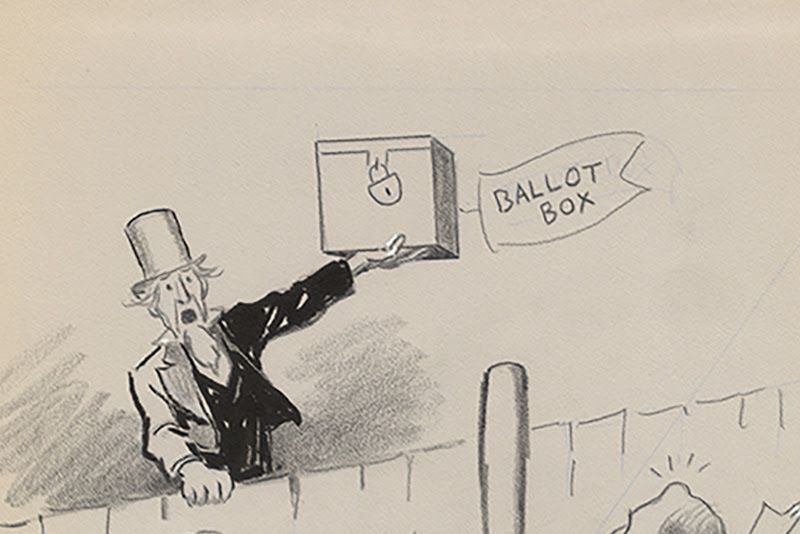Every week, the editors of The Paris Review lift the paywall on a selection of interviews, stories, poems, and more from the magazine’s archive. You can have these unlocked pieces delivered straight to your inbox every Sunday by signing up for the Redux newsletter.
This week, we bring you Arthur Miller’s 1966 Art of Theater interview, Wang Meng’s short story “The Stubborn Porridge,” and Martha Hollander’s poem “Election Night.”
If you enjoy these free interviews, stories, and poems, why not subscribe to read the entire archive? You’ll also get four new issues of the quarterly delivered straight to your door.
Arthur Miller, The Art of Theater No. 2
Issue no. 38 (Summer 1966)
I always drew a lot of inspiration from politics, from one or another kind of national struggle. You live in the world even though you only vote once in a while. It determines the extensions of your personality. I lived through the McCarthy time, when one saw personalities shifting and changing before one’s eyes, as a direct, obvious result of a political situation. And had it gone on, we would have gotten a whole new American personality—which in part we have … Such a pall of fright was laid upon us that it truly deflected the American mind. It’s part of a paranoia which we haven’t escaped yet. Good God, people still give their lives for it; look what we’re doing in the Pacific.
The Stubborn Porridge
By Wang Meng
Issue no. 129 (Winter 1993)
“Make a stand for Democracy!” he cried, “Hold elections! Democratic Elections, this is the key, the acupuncture point, this is the nostril of the ox where you insert the ring, this is the central link of the chain! Everybody run for elections! Let everyone make an election speech, like bidding for a contract: how much you charge, the kind of food you will supply, the obligations of the members of the family who join your program, how much you expect to get paid. Everything must be Open, Transparent, Codified, Documented, Legalized, Programed and Systemized. Let the Ballot decide! Let the People cast their vote! Let the majority rule! The minority must give in to the majority. This principle in itself is an indication of a new concept, new spirit, new order, offsetting Rigidity on the one hand, and Anarchism on the other!”
Election Night
By Martha Hollander
Issue no. 145 (Winter 1997)
The first Tuesday in this warm November
brushes Long Island in a last caress
before winter repels our communities
like a storm door slamming on a windy day.
Gentle enough, in fact, for the beach.
Here to beckon to the Indian sunset
are joggers with their superb, joyful dogs,
a few rebels beating the commute,
and a pair of lovers murmuring to the crunch
of sand in the folds of their heavy leather jackets.
Change, they all desire change, a radiant
new face, or a world awash in truthlike the wet shore starving for the waves
that break, rush forward and collapse on it,
shimmering green and gold, salty, spent.
Everyone will still be home by nine.
But as they step behind their curtains tonight,
who can begrudge them their defining acts
of longing, stern hope, audacity, contempt?
The sun gives way to the penetrating lamp
of the local polling place. Citizens all,
they move their hands over the humble, battered
body of the nation, while their fingers
make full utterance: I want, I want.
If you like what you read, get a year of The Paris Review—four new issues, plus instant access to everything we’ve ever published.
from The Paris Review https://ift.tt/2Dqh5iY



Comments
Post a Comment